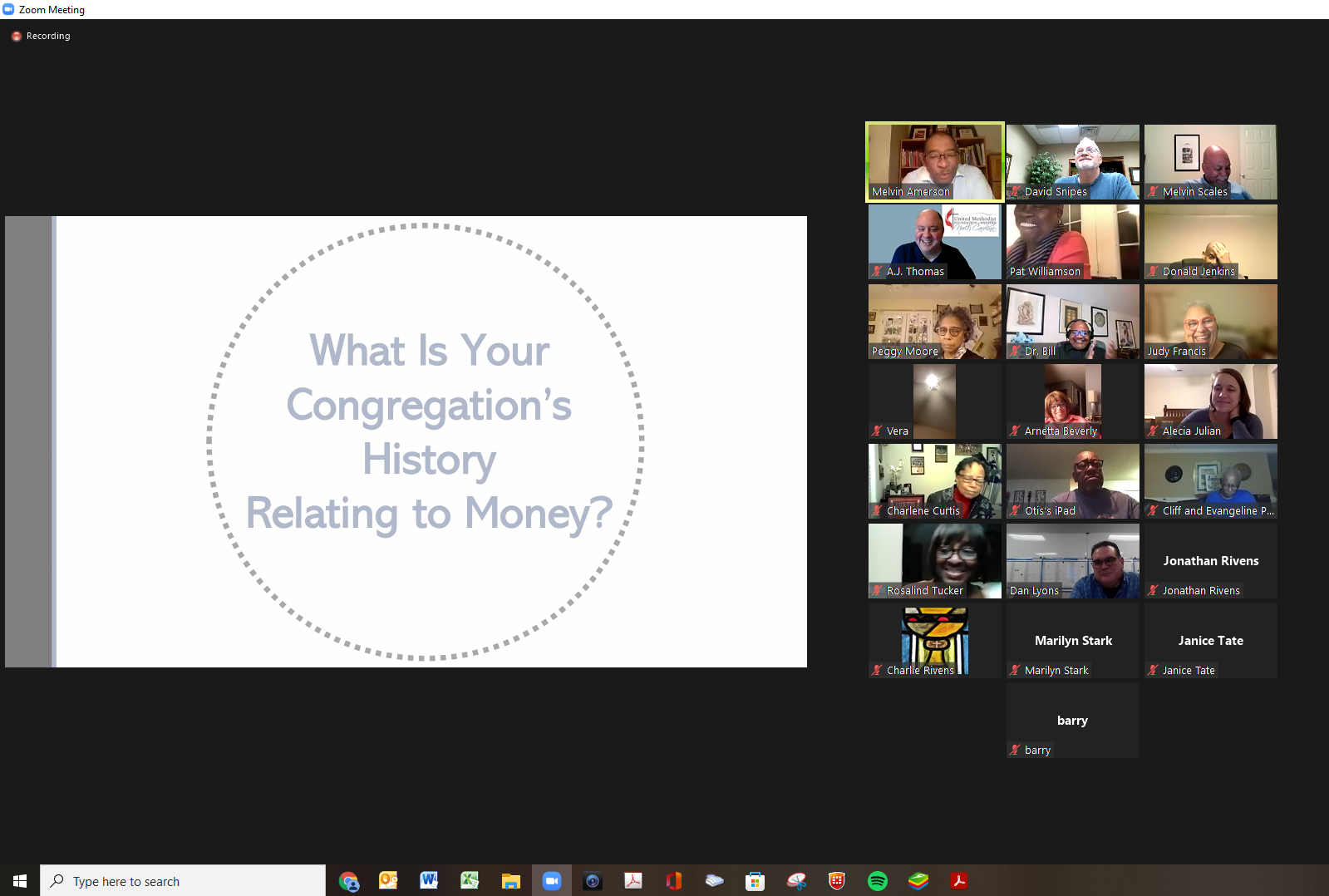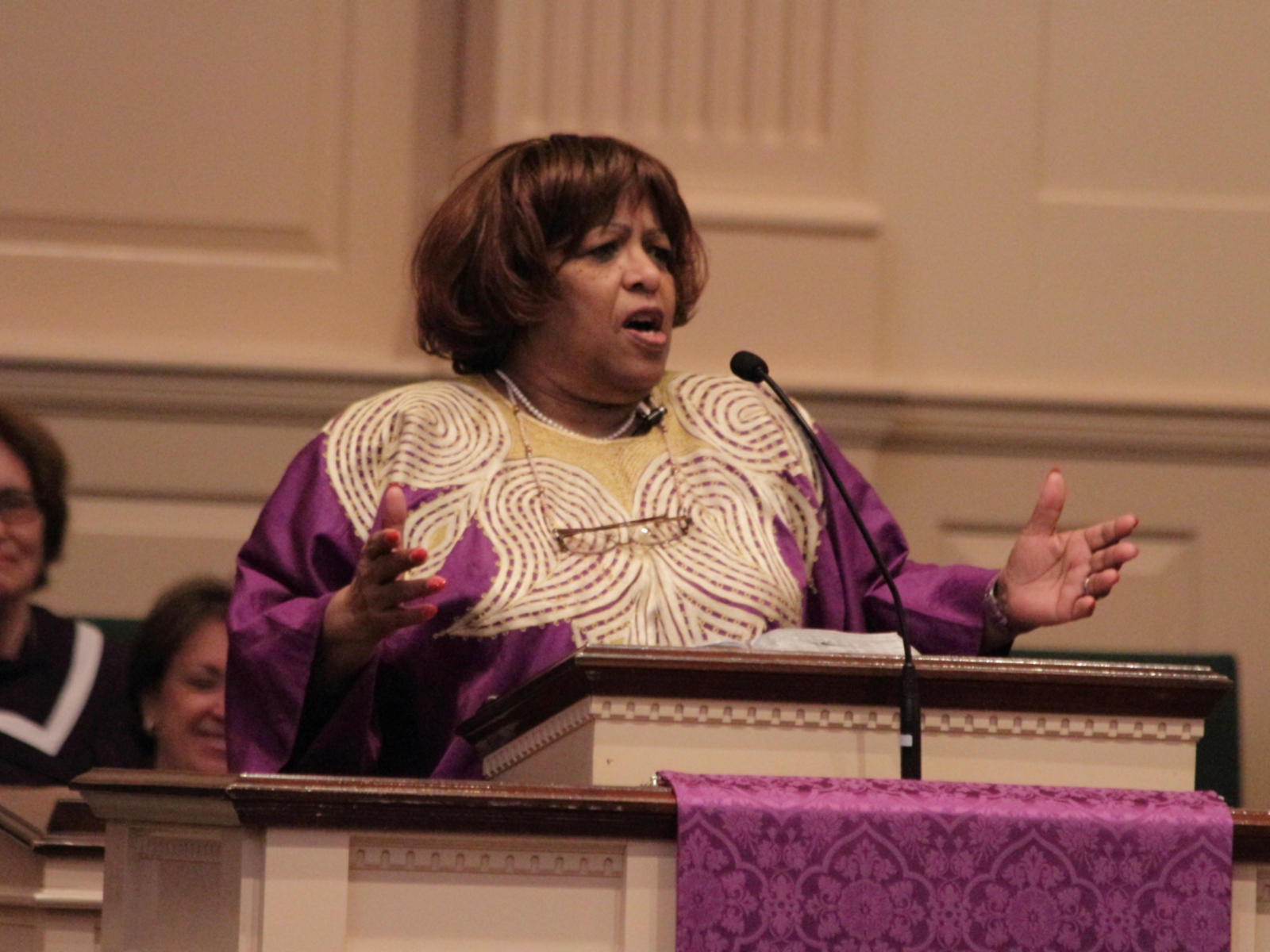
But churches will need to adapt to shifting technology and giving preferences in order to reach members of the next generation, many of whom have their own priorities on philanthropy.
These are among the insights shared in “Transformational Generosity,” a five-part webinar series on stewardship in the African-American Church co-sponsored by the Foundation and Dr. Bill White, Director of Equity and Justice Ministries for the Western North Carolina Conference.
In many congregations, the offering happens without much forethought. We may even consider it an interruption to the spiritual flow of worship. But it’s actually an important, biblical part of the service. It gives us a chance to focus on giving thanks and giving back to the God who has so generously given to us.
Leading people to generosity
Guest facilitator Rev. Melvin Amerson provided practical ways to encourage faithful giving, such as delivering sermons on stewardship; emphasizing giving throughout the year and not just on special occasions; using Scripture during the offering appeal; and celebrating the gifts and offerings that are received.
Melvin is an ordained elder, author and stewardship consultant with Texas Methodist Foundation.
He believes that churches grow in generosity when stewardship is preached, taught and embraced. This wisdom resonated with Melvin Scales, a lay leader at St. Paul UMC in Winston-Salem.
“You can’t lead a healthy and growing church without leading people into generosity,” Melvin said. “Having a healthy discussion about money in the church should not be a sermon after a few weeks of low offerings. It should be intentional.”
Younger members often have different motivations for tithing, Dr. White said.
“The current generation is more likely to seek ministries that meet their sense of mission and discipleship,” he said. “They do not see church as a building, but as ministry and relationship with the community. Oftentimes, the worship service is not seen as the central focus of the church but the catalyst for service to the community and support of a particular cause or group.”
People give when they are engaged in the broader mission of the church, says Rev. Charlie Rivens, pastor of The Place UMC in Charlotte’s University City area.
“Churches today miss the opportunity of creating fellowship while raising money,” he said. “We want to run and do a check ministry. But ministry is more than just money – it’s touching the heart, mind and soul. If you teach that giving is more than just your finances, your ministry is stronger.”

Dr. Arnetta Beverly of St. Stephen United Methodist Church in Lexington
Numbers offer a mixed picture
While the percentage of Americans giving to religious causes has been on a slow slide for some time, it took an 8-point dip during the pandemic from 52% to 44%. Thus, for two years now, less than half of Americans report giving anything to religious causes.
Fewer people giving to religious causes does not equal less money being given to individual congregations, however. Many congregations reported stable or increased total dollars given in 2021. One of those is St. Stephen United Methodist Church in Lexington, the oldest African-American church in Davidson County.
Dr. Arnetta Beverly grew up in the church and now serves as its first female pastor. St. Stephen, she says, has continued to be a gathering spot for the community and an important contributor to mission and outreach efforts.
“We have not missed a beat,” she said. “These are loyal members who love the church.”
Foundation earns highest rating for financial management
Independent auditors at Foard and Company have given (graded, if you will) the Foundation’s financial stewardship the highest rating (an unqualified opinion).
With lower threshold, church loans serve wider range of needs
Church loans are now available for as low as $50,000, a change that enables the Foundation's UMF Development Fund Loan Program to better respond to the needs of those it serves.
Tomorrow’s leaders serving in your church today
The Foundation partners with individuals, families and other funders to provide scholarships for students pursuing their dreams through higher education. Meet some of this year's recipients.